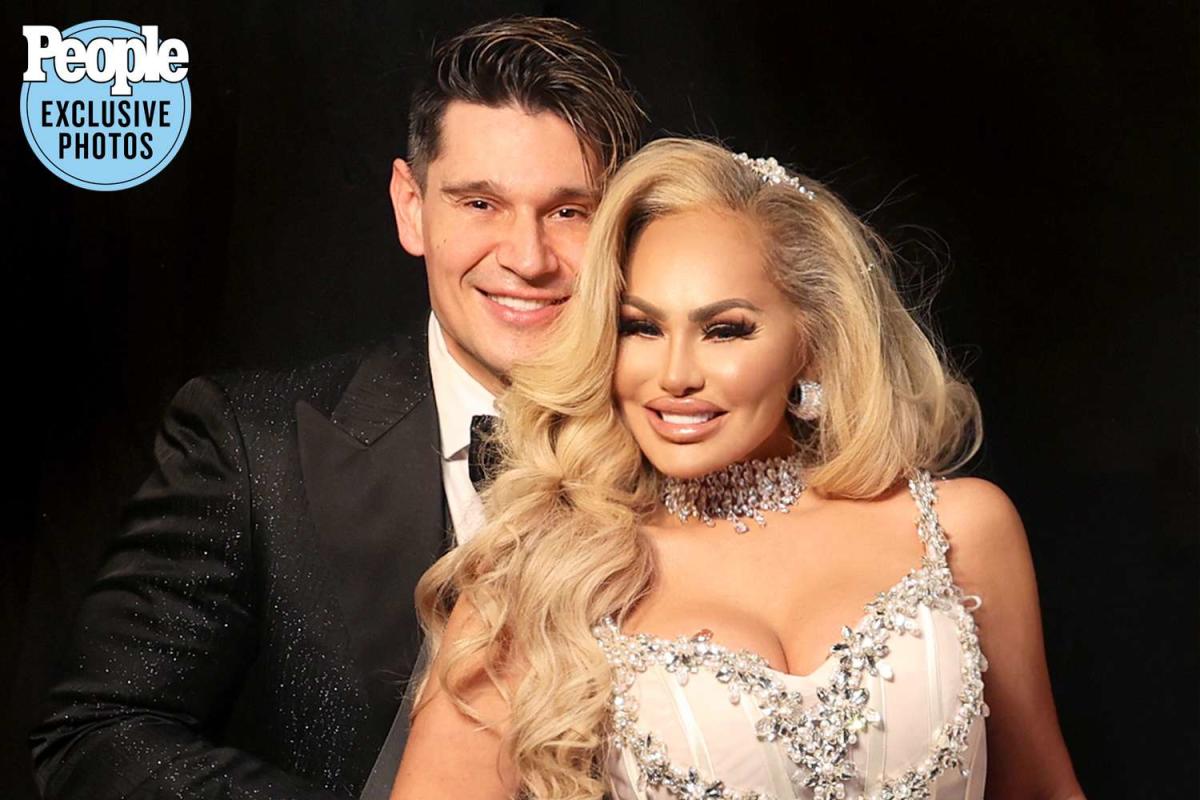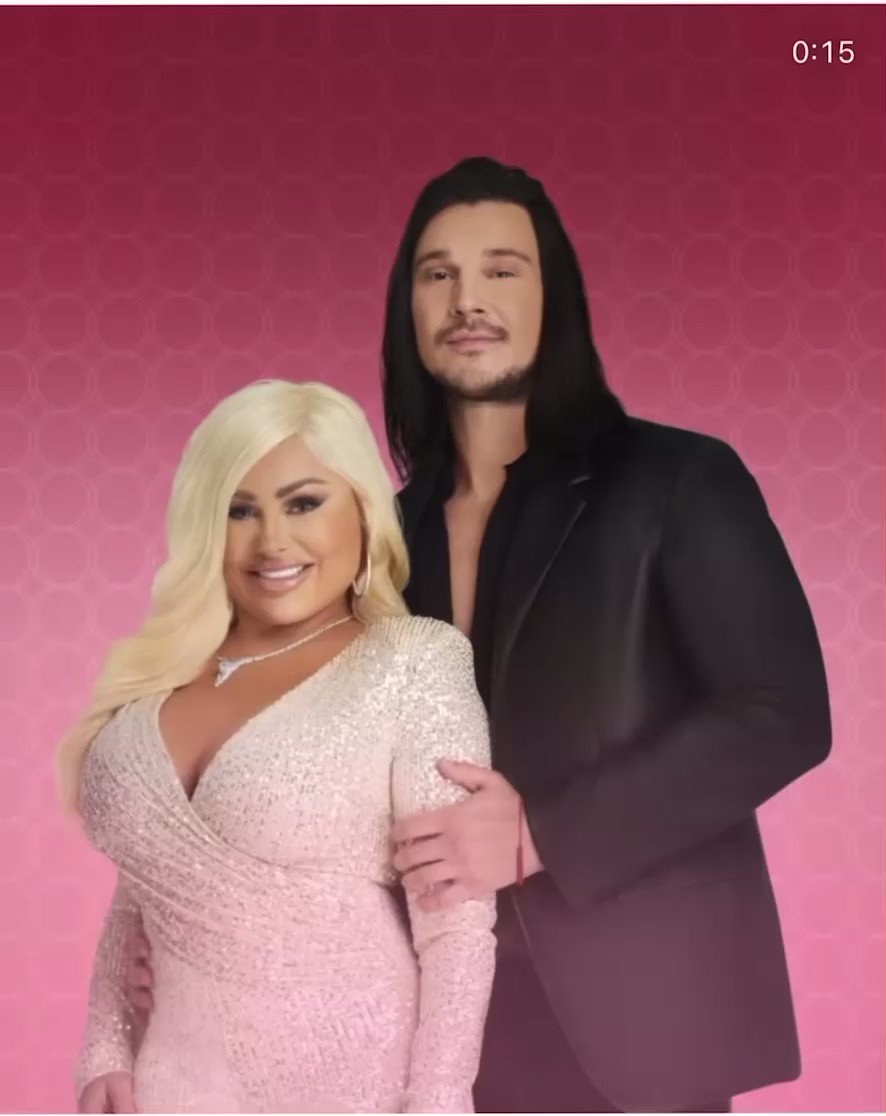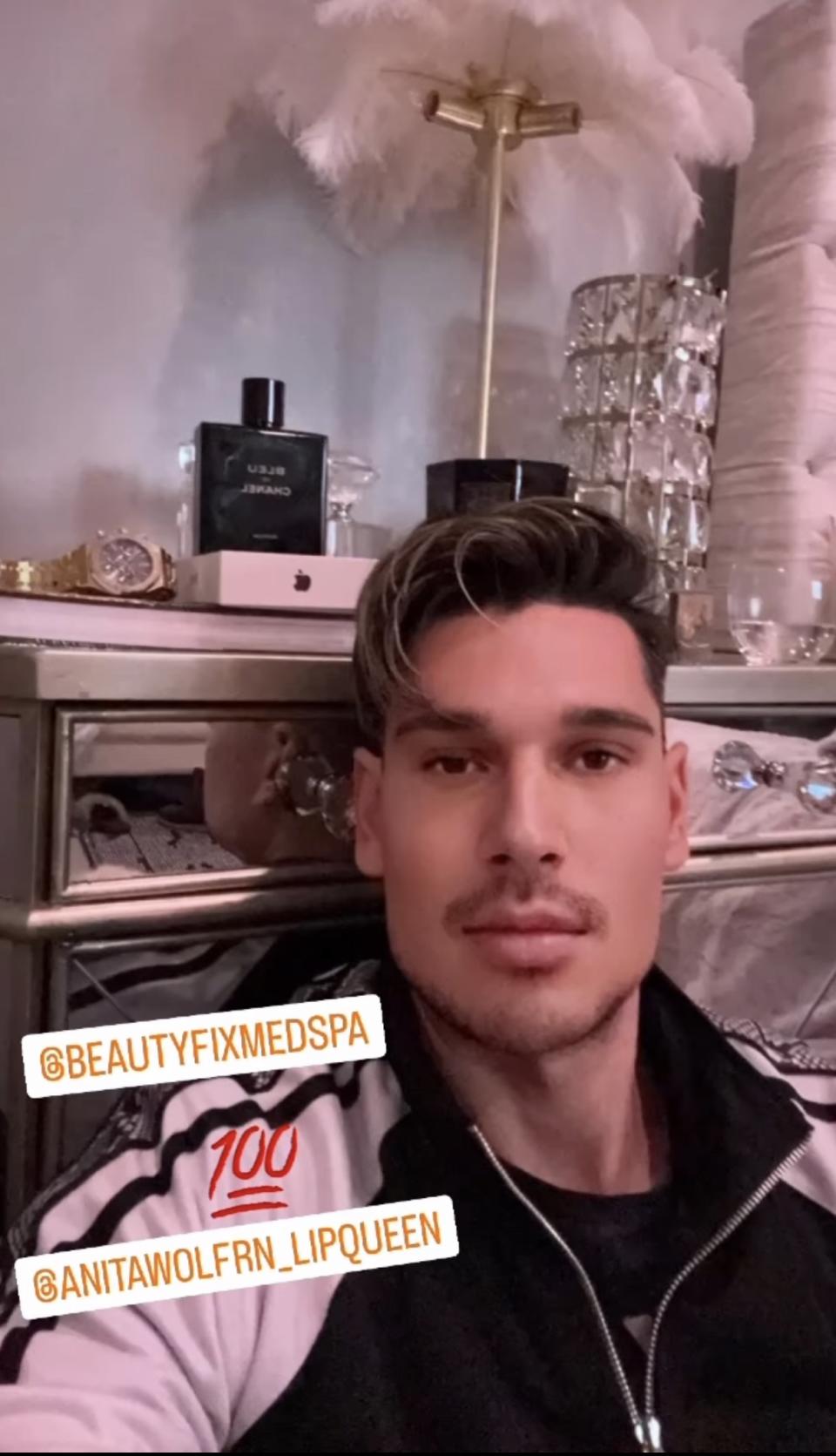Unveiling The Reasons Behind Georgi Rusev's Plastic Surgery Journey
The question "Why Did Georgi Rusev Get Plastic Surgery" asks about an act of getting plastic surgery that Georgi Rusev took. When someone wants to alter their physical appearance, they typically go under the knife for a plastic surgery procedure; a celebrity example of this is Simon Cowell's facelift.
Plastic surgery has many purposes, including: correcting birth defects, reconstructing disfigured body parts, or improving a person's appearance. Throughout history, people have sought out plastic surgery procedures for either medical or aesthetic reasons, with one of the earliest known surgeries being performed in India around 600 BC. These surgeries, though sometimes controversial, have helped individuals feel more confident and self-assured, thus continuing to remain popular today.
This article will explore the reasons behind Georgi Rusev's decision to undergo plastic surgery and discuss the potential benefits and drawbacks of such a choice.
Why Did Georgi Rusev Get Plastic Surgery
Understanding the motivations behind Georgi Rusev's plastic surgery decision requires examining various key aspects. These include:
- Appearance
- Self-esteem
- Career
- Social pressure
- Body image
- Cultural norms
- Mental health
- Physical health
Each of these aspects intersects with the decision to undergo plastic surgery, influencing the individual's reasons and expectations. Appearance, self-esteem, and career prospects are often primary considerations, as individuals seek to enhance their physical attributes and boost their confidence. Social pressure and cultural norms can also play a role, shaping perceptions of beauty and influencing decisions about cosmetic procedures. Body image, mental health, and physical health are additional factors that may contribute to the decision-making process, as individuals strive to improve their overall well-being.
| Personal Details | Bio Data|---|---|| Name | Georgi Rusev || Birthdate | 26 December 1985 || Birthplace | Plovdiv, Bulgaria || Nationality | Bulgarian || Occupation | Professional wrestler || Years active | 2008present || Spouse | Catalina White (2016present) |
Appearance
Appearance plays a significant role in the decision to undergo plastic surgery. For Georgi Rusev, concerns about his appearance may have influenced his choice to pursue cosmetic enhancements.
- Facial Features
Facial features, such as the shape of the nose, eyes, or jawline, can greatly impact a person's overall appearance. Individuals may seek plastic surgery to alter these features, aiming to achieve a more desired or balanced look.
- Body Contouring
Body contouring procedures, such as liposuction or tummy tucks, can help reshape and redefine different areas of the body. These surgeries aim to improve the patient's body proportions and enhance their overall physique.
- Skin Rejuvenation
Skin rejuvenation treatments, such as laser therapy or chemical peels, can improve the texture, tone, and appearance of the skin. These procedures aim to reduce visible signs of aging, sun damage, or other skin concerns.
- Muscle Enhancement
Muscle enhancement procedures, such as breast implants or bicep augmentation, can increase the size and definition of certain muscle groups. These surgeries are often sought after by individuals who desire a more muscular or athletic appearance.
Ultimately, the specific aspects of appearance that Georgi Rusev sought to enhance through plastic surgery remain unknown. However, by considering the various ways in which appearance can influence self-esteem, career opportunities, and overall well-being, we can gain a deeper understanding of the potential motivations behind his decision.
Self-esteem
Self-esteem plays a crucial role in shaping an individual's decision to undergo plastic surgery. It encompasses a person's overall sense of worth, confidence, and satisfaction with themselves. In the context of Georgi Rusev's plastic surgery, self-esteem may have been a significant motivating factor influencing his choice to pursue cosmetic enhancements.
- Body Image
Body image refers to an individual's perception and feelings towards their physical appearance. A negative body image, characterized by self-criticism and dissatisfaction, can lead individuals to seek plastic surgery as a means of improving their perceived flaws.
- Self-Confidence
Self-confidence stems from a belief in one's abilities and worth. Low self-confidence can lead individuals to feel insecure and inadequate, potentially driving them to seek plastic surgery as a way to boost their confidence and self-assurance.
- Social Comparison
Social comparison involves comparing oneself to others, often leading to feelings of inadequacy or superiority. Individuals who engage in negative social comparisons may be more likely to consider plastic surgery as a means of meeting perceived societal standards of beauty and worth.
- Mental Health
Mental health conditions, such as body dysmorphic disorder or depression, can significantly impact self-esteem and body image. Individuals with these conditions may be more prone to seeking plastic surgery as a way of coping with their mental distress.
Georgi Rusev's decision to undergo plastic surgery may have been influenced by one or more of these facets of self-esteem. By understanding the complex relationship between self-esteem and plastic surgery, we can gain a deeper insight into the motivations behind individuals' choices to pursue cosmetic enhancements.
Career
The relationship between career and plastic surgery is complex and multifaceted. For some individuals, plastic surgery can be a strategic career move, enhancing their appearance and boosting their confidence in a competitive job market. Georgi Rusev's decision to undergo plastic surgery may have been influenced by similar considerations.
In the entertainment industry, physical appearance often plays a significant role in career success. Actors, models, and wrestlers rely on their physical attributes to secure roles and maintain their popularity. Plastic surgery can provide these individuals with an edge, allowing them to conform to industry standards of beauty and appeal to a wider audience. Georgi Rusev, as a professional wrestler, may have sought plastic surgery to enhance his physique and maintain a competitive advantage in the ring.
Beyond the entertainment industry, plastic surgery can also benefit careers in other fields. Individuals in sales, marketing, and customer service may undergo cosmetic procedures to improve their self-confidence and project a more professional and polished image. By enhancing their appearance, they may feel more capable and persuasive in their interactions with clients and colleagues.
Understanding the connection between career and plastic surgery provides valuable insights into the motivations and decision-making processes of individuals considering cosmetic enhancements. It highlights the role of appearance in career success, particularly in industries that emphasize physical attributes. This understanding can also inform career counseling and guidance, as individuals navigate the complex relationship between their appearance and professional aspirations.
Social pressure
Social pressure, a pervasive force in our society, significantly influences individuals' decisions and behaviors, including those related to plastic surgery. In the case of Georgi Rusev, social pressure may have played a role in his decision to undergo cosmetic enhancements. To understand the connection between social pressure and Georgi Rusev's plastic surgery, we must examine the complex interplay between societal norms, personal values, and individual choices.
Social pressure can manifest in various forms, such as direct encouragement or criticism from peers, family members, or the media. It can also take the form of more subtle influences, such as the portrayal of idealized body types in advertising and social media. These pressures can create a sense of dissatisfaction and inadequacy, leading individuals to consider plastic surgery as a means of conforming to perceived societal standards of beauty and acceptance.
Whether social pressure is a critical component of Georgi Rusev's decision to undergo plastic surgery is difficult to determine conclusively. However, it is worth noting that the entertainment industry, in which Rusev works, places a high value on physical appearance. The pressure to maintain a certain image and appeal to a wide audience may have influenced his decision to seek cosmetic enhancements. Additionally, the prevalence of plastic surgery within the wrestling community may have normalized the practice, making it a more acceptable and desirable option for Rusev.
Understanding the connection between social pressure and plastic surgery has practical applications in various fields, including psychology, sociology, and marketing. By recognizing the role of social pressure in shaping individuals' decisions, we can develop more effective strategies for promoting positive body image, preventing negative self-perceptions, and making informed choices about cosmetic procedures. Furthermore, this understanding can inform public health campaigns and media literacy initiatives aimed at countering the potentially harmful effects of unrealistic beauty standards.
Body image
Understanding the significance of body image is crucial in exploring the motivations behind Georgi Rusev's plastic surgery decision. Body image encompasses an individual's perception, feelings, and thoughts about their physical appearance. It plays a significant role in shaping self-esteem, self-confidence, and overall well-being.
- Self-Perception
Self-perception is an internalized image of one's physical attributes. This subjective view is influenced by various factors, including genetics, personal experiences, and cultural norms. Negative self-perception can lead individuals to seek plastic surgery to alter their appearance and align it better with their desired self-image.
- Social Comparison
Social comparison involves comparing oneself to others, which can impact body image. Exposure to idealized images in media and social media can create unrealistic beauty standards, leading individuals to feel dissatisfied with their own appearance. This dissatisfaction may drive them to consider plastic surgery as a means of achieving a more socially acceptable or desirable look.
- Body Dysmorphic Disorder
Body dysmorphic disorder (BDD) is a mental health condition characterized by a distorted perception of one's appearance. Individuals with BDD may perceive minor flaws as significant and engage in excessive grooming or plastic surgery to correct these perceived defects.
- Cultural Influences
Cultural norms and values shape body image perceptions. Different cultures have varying ideals of beauty, influencing individuals' goals and expectations for their physical appearance. Georgi Rusev, as a Bulgarian wrestler, may have been influenced by cultural standards of masculinity and athleticism, which could have played a role in his decision to undergo plastic surgery.
These facets of body image provide a deeper understanding of the complex relationship between body perception and plastic surgery. By considering the interplay between self-perception, social comparison, mental health, and cultural influences, we gain valuable insights into the motivations and experiences of individuals who choose to undergo cosmetic enhancements.
Cultural norms
Cultural norms exert a significant influence on individuals' perceptions of beauty and self-image, which may drive their decisions to undergo plastic surgery. Georgi Rusev's cultural background and the associated beauty standards may have shaped his motivations for cosmetic enhancements.
In many cultures, certain physical attributes are considered more desirable than others. For example, in Western cultures, a lean and muscular physique is often associated with masculinity and athleticism, while fair skin and symmetrical features are considered attractive in both men and women. Georgi Rusev, as a Bulgarian wrestler, may have been influenced by these cultural norms, as the wrestling industry places a high value on physical appearance.
Cultural norms can also influence body image and self-esteem. Individuals who do not conform to these norms may experience negative emotions, such as dissatisfaction or low self-worth. This can lead them to seek plastic surgery as a means of aligning their appearance with societal expectations and improving their self-perception.
Understanding the connection between cultural norms and plastic surgery has practical applications in various fields, including psychology, sociology, and marketing. By recognizing the role of cultural norms in shaping body image and self-esteem, we can develop more effective strategies for promoting positive body image, preventing negative self-perceptions, and making informed choices about cosmetic procedures. Additionally, this understanding can inform public health campaigns and media literacy initiatives aimed at countering the potentially harmful effects of unrealistic beauty standards.
Mental health
Mental health encompasses an individual's emotional, psychological, and social well-being and plays a significant role in understanding the motivations behind plastic surgery decisions, including those of Georgi Rusev. Various mental health aspects can influence an individual's body image, self-esteem, and overall perception of themselves. Understanding these connections provides a deeper insight into the complex factors that contribute to the pursuit of cosmetic enhancements.
- Body Dysmorphic Disorder
Body dysmorphic disorder (BDD) is a mental health condition characterized by an excessive preoccupation with perceived flaws in one's appearance. Individuals with BDD may undergo plastic surgery in an attempt to correct these perceived flaws, even though they may be minimal or nonexistent.
- Depression
Depression is a mood disorder that can lead to negative feelings, loss of interest in activities, and a diminished sense of self-worth. Individuals with depression may seek plastic surgery as a way to improve their mood and boost their self-esteem.
- Anxiety
Anxiety disorders, such as social anxiety disorder or generalized anxiety disorder, can cause excessive worry and fear. Individuals with anxiety may undergo plastic surgery to reduce their anxiety about their appearance and improve their social interactions.
- Self-Esteem
Self-esteem refers to an individual's overall sense of self-worth and confidence. Low self-esteem can lead to negative body image and dissatisfaction with one's appearance. Individuals with low self-esteem may seek plastic surgery to improve their self-perception and boost their confidence.
These mental health factors, among others, can contribute to the decision to undergo plastic surgery. By understanding the complex interplay between mental health, body image, and self-esteem, we gain a more comprehensive understanding of the motivations behind individuals' choices to pursue cosmetic enhancements.
Physical health
Physical health encompasses an individual's overall physical well-being and is closely linked to the motivations behind plastic surgery decisions, including those of Georgi Rusev. Various physical health factors can influence an individual's body image, self-esteem, and overall perception of themselves, leading them to consider cosmetic enhancements as a means of improving their physical appearance and health.
One common reason individuals undergo plastic surgery is to address physical health conditions or concerns. For example, Georgi Rusev may have sought plastic surgery to enhance his athletic performance, improve his physical capabilities, or alleviate any discomfort or limitations caused by a physical condition. Plastic surgery can provide functional benefits in such cases, enabling individuals to lead more active and fulfilling lives.
Understanding the connection between physical health and plastic surgery has practical applications in various fields, including medicine, fitness, and rehabilitation. By recognizing the role of physical health in shaping body image and self-esteem, healthcare professionals can develop more comprehensive treatment plans that address both the physical and psychological aspects of a patient's health. Additionally, this understanding can inform public health campaigns and initiatives aimed at promoting healthy body image and preventing negative self-perceptions.
In conclusion, physical health plays a significant role in the decision to undergo plastic surgery. Whether it is to address a physical health condition, enhance athletic performance, or improve overall well-being, understanding this connection provides valuable insights into the motivations and experiences of individuals who choose to pursue cosmetic enhancements.
In conclusion, the decision to undergo plastic surgery, as exemplified by Georgi Rusev's case, is influenced by a complex interplay of factors encompassing appearance, self-esteem, career, social pressure, body image, cultural norms, mental health, and physical health. Understanding these factors provides valuable insights into the motivations and experiences of individuals who choose to pursue cosmetic enhancements.
Key points to consider include the influence of cultural norms on beauty standards, the role of social media in shaping body image, and the potential impact of mental health conditions on body dysmorphic disorder. By recognizing these interconnections, healthcare professionals, policymakers, and individuals can engage in informed discussions about plastic surgery, its benefits, and its potential risks.
Ultimately, the decision of whether or not to undergo plastic surgery is a personal one, and it is crucial to approach it with a balanced perspective that considers both the potential benefits and drawbacks. By fostering open and honest conversations about body image, self-esteem, and the pursuit of cosmetic enhancements, we can promote a more positive and realistic understanding of beauty and self-acceptance.

Inside “90 Day Fiancé” Stars Darcey Silva and Rusev's

Rusev on Twitter "Darcey & Stacey is out tonight with the new

‘Darcey and Stacey’ Star Rusev Debuts New Plastic Surgery Amid